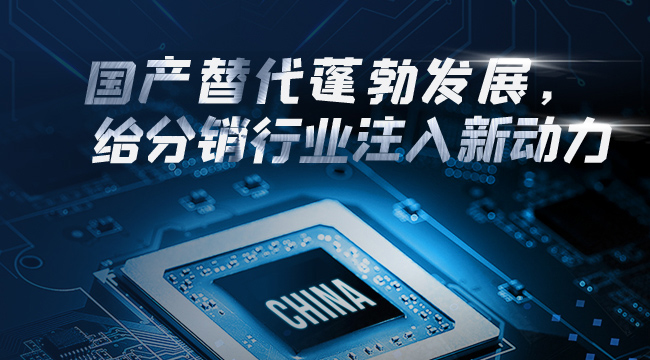
In recent years, the “core shortage tide” has triggered a series of industrial changes, the most important of which is the rapid development of Chinese production substitution. Compared with the one-year delivery time of large factory materials, many Chinese materials have become the preferred choice of end manufacturers with lower price and shorter delivery time on the premise of functional replacement.
The macro environment is becoming more and more changeable, and China’s chip self-sufficiency must be constantly deepened to better “escort” the major industrial chains. This means that, regardless of the policy level or the industry level, the issue of replacing chips made in China will certainly become more and more popular. Not only are the relatively low-end simulators and MCU, but also the relatively high-level vehicle gauge materials will be widely spread, and the “hard to hard” competition with the materials from international major manufacturers will be carried out.
As an organic whole, the chip industry chain is shaped by the original factory, distribution channels and production terminals through long-term interaction, and the role of distribution channels in bridging the industry chain is still critical. The existing statistics show that less than 1% of super customers directly purchase from the original factory, accounting for 44% of the total amount; The remaining 99% of customers purchase the remaining 56% through distributors. It can be seen from this that the local emerging original factories still need to use the distribution channels to promote their products more efficiently.
On the other hand, in recent years, international original factories have pursued direct sales, and consciously alienated distribution channels, posing challenges to many distributors. Nowadays, the substitution of Chinese products is developing rapidly, and the distributor’s access to Chinese materials is also an important part of the continuous development. However, the substitution process of serving Chinese products also has its particularity. Distributors need more comprehensive service capabilities to be relatively flexible.

In the chip industry, for a long time, the original factory has been responsible for the research, development and manufacturing of products, and the promotion and circulation of products must be handed over to the distribution channels. At present, many local original factories are still in the initial and development stage, and in-depth research and development cannot give consideration to promotion and marketing. In addition, most end manufacturers need distributors to help them screen and test when they switch to domestic materials. In this process, technical support provided by distributors and material supply guarantee are two core elements.
Model selection is the starting point for the substitution of end customers. It is not easy to choose the right chip from a wide range of Chinese chips. In the case that the original manufacturer’s technical support is not available, the task of auxiliary model selection should rely extensively on competent distributors. Distributors need to be fully involved in both the in situ substitution with low difficulty and clear process, and the functional substitution to modify the design or even redo the scheme. In particular, in terms of functional alternatives, distributors often need to work together with the original factory to coordinate feasible solutions, which further requires distributors to cooperate with the original factory tacitly, so as to help customers smoothly transition to domestic alternatives.
After solving the problem of material selection, the distributor will start to supply materials to customers. After experiencing the tide of core shortage, many end customers have a deep memory of the shortage and price rise of large factories’ materials and the difficulty in obtaining a single material. Nowadays, switching to domestic materials inevitably requires more reasonable material prices and stable supply. This requires distributors not only to establish advantages in the traditional warehousing and logistics field, but also to use emerging big data technology to analyze market conditions and help customers establish a complete inventory management mechanism, In order to reduce the cost of the whole industry chain of end customers, and to prevent the impact of emergencies on material supply.
Of course, the role of the distributor’s supply chain hub is not only for the end customer, but also for the original factory to deeply analyze the market demand trend and industrial development trend through the market information collected by the distributor, so as to develop products more specifically. For example, when the current consumer electronics is in cold weather, the local original factory needs to refer to the information collected by the distribution channel to determine the pain points to be solved and the indicators to be achieved for new products, so as to carry out product research and development with a targeted view and try to avoid detours in the process of transformation.

In a word, the wave of domestic substitution requires distributors to have comprehensive competitiveness. Whether it is technology accumulation, team building, supply chain running in and other work, it tests the “internal strength” of distributors. Distributors who operate foreign materials at an early stage and have accumulated deep customer resources and service experience will be more proactive in the wave of Chinese product substitution. Once the end customer starts the process of replacing Chinese products, these competitive distributors will be the first to connect and form a stable cooperative relationship with customers.
This round of chip substitution in China is a rare opportunity, but it also means that the local industrial chain will have more collisions with the ecological pattern of international large factories. At present, large international factories are expanding their production. After the supply of materials rebounds, they may seize the domestic market share. In this window period of domestic substitution, local manufacturers and distributors need to give play to their respective advantages in order to retain the early accumulation of domestic substitution and expand the market.
Media Contact
Company Name: Shenzhen Noco Technology Co., Ltd.
Email: Send Email
Country: China
Website: https://www.nocochips.com/
